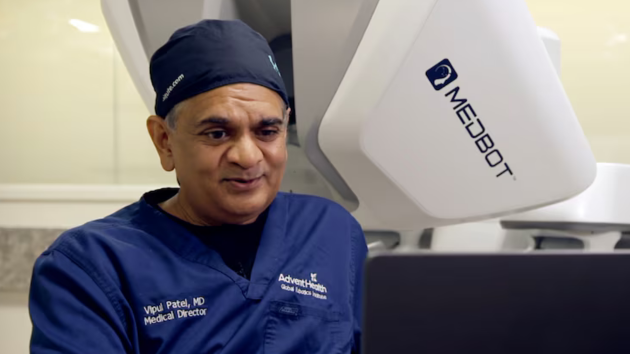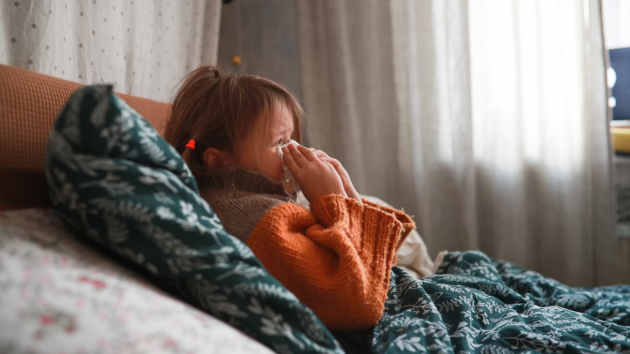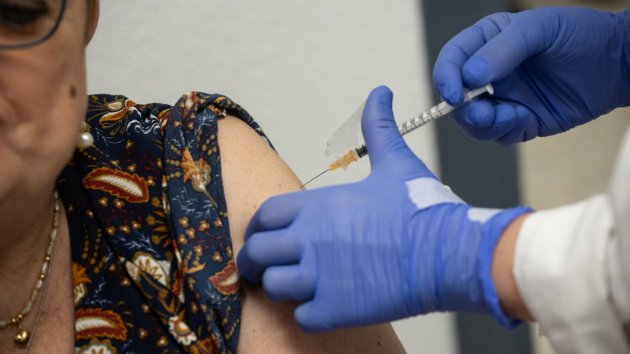Doctor discusses report detailing drop in breast cancer cases, deaths
Written by ABC Audio All Rights Reserved on October 4, 2024

(NEW YORK) — Dr. Lisa Newman, the chief of the section of breast surgery at New York-Presbyterian/Weill Cornell Medical Center, sat down with ABC News to discuss breast cancer prevention, early screenings and diagnosis discrepancies.
A new American Cancer Society report, released in October, which is Breast Cancer Awareness Month, finds that breast cancer mortality rates overall have dropped by 44% since 1989, averting about 517,900 breast cancer deaths. However, not all women have benefited from this progress.
ABC News discussed the issue with Newman, who provided more context.
ABC NEWS: Dr. Lisa Newman, chief of the section of breast surgery at New York Presbyterian/Weill Cornell Medical Center. Dr. Newman, thank you so much for joining us. So overall, are you encouraged or concerned by this report?
DR. LISA NEWMAN: Well, thank you for this attention to such a major problem of breast cancer. As you mentioned, it is rising in incidence in American women. So we are very gratified to see these continued declines in breast cancer mortality rates. This is a testimony to our successes with breast health awareness, early detection through screening mammography programs and wonderful advances that we’ve made in treatment.
But as you also noted, we are still seeing some rather appalling and disturbing trends in the breast cancer statistics. It’s very concerning to us that the rates of breast cancer are rising for young women, women younger than the age of 50. And this is for a variety of reasons. We are also seeing very concerning disparities in the burden of breast cancer and, in particular, breast cancer death rates continue to be significantly higher for African-American women and for Black women younger than the age of 50.
ABC NEWS: As far as the disparities with regard to ethnic groups, which we also discussed, why the increase there as well?
NEWMAN: Yeah. The disparities in breast cancer burden are also secondary to some complex factors with the disproportionate mortality rates that we see in Black women. We know that this is going to be explained heavily by socioeconomic disadvantages that are more prevalent in the African-American community, and African-American women are more likely to be diagnosed with more advanced breast cancers because of delays in diagnosis.
Black women are more likely to have delays in initiation of treatment, and there are some tumor biology questions that we need to evaluate in research, as well. A lot of the research that I do actually looks at the breast cancer burden of women with African ancestry. And we do know that African ancestry in and of itself increases the likelihood of getting biologically aggressive forms of breast cancer and getting breast cancer at younger ages. So we need to address that, these socioeconomic disparities, but we also need more research to understand these biological differences.
ABC NEWS: And we saw that we’re just seeing that trend of an increase year after year. What can we do to, to try and bring these numbers down?
NEWMAN: Being aware of breast health is very important and making sure that you get screened regularly. For average risk women, The American Society of Breast Surgeons advocates in favor of getting yearly mammograms starting at age 40. If you have a strong family history, you should consider getting genetic testing, because if you do have inherited predisposition for breast cancer, you may need to start getting your mammograms at even younger ages.
ABC NEWS: The good news that we see here in this report: The mortality rate has dropped in the last year compared to 35 years ago. What do you attribute that to?
NEWMAN: Yeah. Very exciting to see that the mortality rates are declining. This is secondary to women advocating more forcefully for themselves and getting screened regularly. Women also, we want to remind women that mammograms aren’t perfect. And so women do indeed need to be aware of the potential danger signs of breast cancer, such as a new lump in the breast, lump in the underarm, bloody nipple discharge, changes in the skin appearance of the breast like swelling, a rash.
ABC NEWS: And what are some basic things that all women can do to protect themselves? You mentioned diet, for example. What kinds of food or diet would be helpful with this?
NEWMAN: Well, a good way to look at it is in terms of the holistic picture and in general, the dietary patterns that are good for cardiovascular health are good for breast health. So a diet that has lots of fresh fruits and vegetables in it, minimizing fat intake, minimizing alcohol intake, alcohol has also been associated with breast cancer risk.
ABC NEWS: Such important and lifesaving information. Dr. Newman, thank you very much for coming on the show.
NEWMAN: Thank you.
Copyright © 2024, ABC Audio. All rights reserved.

 KVSP
KVSP 





